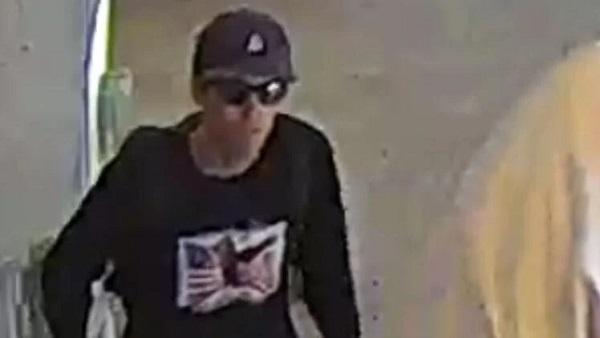
 Sam Cooper
Sam Cooper
In what appears to be the second-largest Chinese precursor-chemical seizure in British Columbia in the past decade, Canadian border and police officials announced they intercepted more than 4,300 litres of chemicals used to manufacture fentanyl and other synthetic drugs at a notoriously troubled port in Delta, B.C.
The announcement of a seizure that occurred in May 2025 comes amid President Donald Trump’s continuing pressure on Ottawa to crack down on fentanyl trafficking in the province — which U.S. officials say has become a key production and shipment point for Chinese and Mexican traffickers.
The seizure — announced jointly by the Canada Border Services Agency (CBSA) and the RCMP — underscores the scale and persistence of global trafficking networks funnelling illicit materials into Canada’s drug markets.
According to the agencies, border officers examined two marine containers that arrived from China in mid-May, both bound for Calgary, Alberta. Acting on intelligence developed by CBSA’s Pacific Region, officers discovered 3,600 litres of 1,4 Butanediol, a key ingredient for producing GHB, often known as the “date-rape drug”; 500 litres of Propionyl Chloride, a chemical precursor used to synthesize fentanyl; and 200 litres of Gamma Butyrolactone (GBL), another controlled intoxicant.
The chemicals were concealed inside 60 clear jugs and 20 blue drums within the containers. Investigators believe the shipment was intended for use in clandestine drug laboratories. The RCMP confirmed that an investigation into the importation network remains ongoing.
The seizure comes amid growing concern about Canada’s port security, particularly in Metro Vancouver, where experts and local officials say criminal networks are exploiting gaps in federal enforcement.
The Delta seizure follows a series of major CBSA operations targeting precursor chemicals at Pacific ports. In May 2022, CBSA officers in the Metro Vancouver District examined a container from China declared as “toys” and discovered 1,133 kilograms of the fentanyl-precursor chemical Propionyl Chloride, with the potential to produce more than a billion doses of fentanyl.
Public Safety Canada also reported that in the first half of 2021, CBSA seized more than 5,000 kilograms of precursor chemicals, compared with just 512 kilograms in 2020 — reflecting what officials called a “dramatic escalation” in attempts to smuggle fentanyl inputs into the country.
In 2023, the City of Delta released a report highlighting major vulnerabilities at port terminal facilities, warning that there is “literally no downside” for organized criminals to infiltrate port operations. The report noted that British Columbia’s provincial threat assessment rated ports as highly susceptible to corruption and organized-crime infiltration.
At the time, Delta Mayor George Harvie called the lack of a dedicated national port-policing force “a threat to national security.” In comments to the Canadian Press, Harvie said that while Canada’s ports fall under federal jurisdiction, the “total absence of uniformed police at the facilities makes them obvious targets for criminal elements — from Mexican drug cartels to biker gangs.”
“We’re witnessing a relentless flow of illegal drugs, weapons and contraband into Canada through our ports, and that threatens our national security,” Harvie said.
The Port of Vancouver complex, which includes major terminals in Delta, Surrey, and Vancouver, handles roughly three million containers annually, with millions more expected as port expansion plans move forward.
The Delta report reiterated how difficult it has become to police these sprawling operations since the Ports Canada Police were disbanded in 1997. More than a quarter-century later, Harvie said, the consequences of that decision are now “alarmingly clear.”
The CBSA announcement today comes as U.S. President Donald Trump has imposed tariffs on Canadian exports, accusing Ottawa of failing to interdict the flow of fentanyl and precursor chemicals trafficked through British Columbia ports. Washington has repeatedly pressed Canada to strengthen port enforcement and anti-money-laundering controls, citing the West Coast’s role in China- and Mexico-linked trafficking networks.
Simultaneously, in trade negotiations with Beijing, Mr. Trump announced a reduction in tariffs tied to the fentanyl supply chain — raising concern that Washington has eased pressure on China, the primary source of finished fentanyl now responsible for hundreds of thousands of overdose deaths across North America.
Subscribe for free to receive new posts and support my work.
For the full experience, please upgrade your subscription and support a public interest startup.
We break international stories and this requires elite expertise, time and legal costs.
Related



















